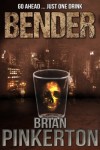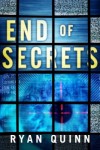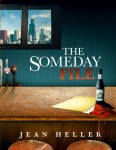

February 16 – 22: “Could you write or revise your novel if word processors were not available?”
 For some authors, computers and word processing programs are a necessity. For others, a pad and pencil will do. This week we ask ITW Members Ryan Quinn, Brian Pinkerton, Lisa Von Biela, Rebecca Cantrell, Jeffrey B. Burton, J. H. Bográn, Merry Jones and Jean Heller: “Could you write or revise your novel if word processors were not available – or do you?”
For some authors, computers and word processing programs are a necessity. For others, a pad and pencil will do. This week we ask ITW Members Ryan Quinn, Brian Pinkerton, Lisa Von Biela, Rebecca Cantrell, Jeffrey B. Burton, J. H. Bográn, Merry Jones and Jean Heller: “Could you write or revise your novel if word processors were not available – or do you?”
~~~~~
 New York Times and USA Today bestselling author Rebecca Cantrell has published nine novels in over ten different languages. Her novels have won the ITW Thriller, the Macavity, and the Bruce Alexander awards. They have been nominated for the GoodReads Choice award, the Barry, the RT Reviewers Choice, and the APPY award. She and her husband and son live in Berlin. Find Rebecca on Facebook, Twitter, and her website.
New York Times and USA Today bestselling author Rebecca Cantrell has published nine novels in over ten different languages. Her novels have won the ITW Thriller, the Macavity, and the Bruce Alexander awards. They have been nominated for the GoodReads Choice award, the Barry, the RT Reviewers Choice, and the APPY award. She and her husband and son live in Berlin. Find Rebecca on Facebook, Twitter, and her website.
 Brian Pinkerton takes everyday, ordinary people and puts them through a living hell. His cruelties include Bender (Crossroad Press), Killer’s Diary (Samhain Publishing), Rough Cut (Bad Moon Books), How I Started the Apocalypse (Severed Press), Vengeance (Leisure Books) and Abducted (Leisure Books). Select titles have also been released as audio books and in foreign languages. Brian received his B.A. from the University of Iowa and Master’s Degree from Northwestern University.
Brian Pinkerton takes everyday, ordinary people and puts them through a living hell. His cruelties include Bender (Crossroad Press), Killer’s Diary (Samhain Publishing), Rough Cut (Bad Moon Books), How I Started the Apocalypse (Severed Press), Vengeance (Leisure Books) and Abducted (Leisure Books). Select titles have also been released as audio books and in foreign languages. Brian received his B.A. from the University of Iowa and Master’s Degree from Northwestern University.
 Lisa von Biela worked in Information Technology for 25 years, then dropped out to attend the University of Minnesota Law School, graduating magna cum laude in 2009. She now practices law in Seattle, Washington. Lisa began writing short, dark fiction just after the turn of the century. Her first publication appeared in The Edge in 2002. She went on to publish a number of short works in various small press venues, including Gothic.net, Twilight Times, Dark Animus, AfterburnSF, and more. She is the author of the novels The Genesis Code and The Janus Legacy, as well as the novella Ash and Bone.
Lisa von Biela worked in Information Technology for 25 years, then dropped out to attend the University of Minnesota Law School, graduating magna cum laude in 2009. She now practices law in Seattle, Washington. Lisa began writing short, dark fiction just after the turn of the century. Her first publication appeared in The Edge in 2002. She went on to publish a number of short works in various small press venues, including Gothic.net, Twilight Times, Dark Animus, AfterburnSF, and more. She is the author of the novels The Genesis Code and The Janus Legacy, as well as the novella Ash and Bone.
 A native of Alaska, Ryan Quinn was an NCAA champion and an all-American skier while at the University of Utah. He worked for five years in New York’s book-publishing industry before moving to Los Angeles, where he writes and trains for marathons. Quinn’s first novel, The Fall, was a finalist in the 2013 International Book Awards. For more, please visit his website.
A native of Alaska, Ryan Quinn was an NCAA champion and an all-American skier while at the University of Utah. He worked for five years in New York’s book-publishing industry before moving to Los Angeles, where he writes and trains for marathons. Quinn’s first novel, The Fall, was a finalist in the 2013 International Book Awards. For more, please visit his website.
 Merry Jones is the author of the Harper Jennings thrillers (SUMMER SESSION, BEHIND THE WALLS, WINTER BREAK, OUTSIDE EDEN, IN THE WOODS), the Elle Harrison novels (THE TROUBLE WITH CHARLIE, ELECTIVE PROCEDURES), the Zoe Hayes mysteries (THE NANNY MURDERS, THE RIVER KILLINGS, THE DEADLY NEIGHBORS, THE BORROWED AND BLUE MURDERS), as well as several humor books (including I LOVE HIM, BUT…) and non-fiction books (including BIRTHMOTHERS: Women who relinquished babies for adoption tell their stories.) She has also written articles for various magazines (including GLAMOUR) and short stories (including Bliss, published in the anthology LIAR LIAR).
Merry Jones is the author of the Harper Jennings thrillers (SUMMER SESSION, BEHIND THE WALLS, WINTER BREAK, OUTSIDE EDEN, IN THE WOODS), the Elle Harrison novels (THE TROUBLE WITH CHARLIE, ELECTIVE PROCEDURES), the Zoe Hayes mysteries (THE NANNY MURDERS, THE RIVER KILLINGS, THE DEADLY NEIGHBORS, THE BORROWED AND BLUE MURDERS), as well as several humor books (including I LOVE HIM, BUT…) and non-fiction books (including BIRTHMOTHERS: Women who relinquished babies for adoption tell their stories.) She has also written articles for various magazines (including GLAMOUR) and short stories (including Bliss, published in the anthology LIAR LIAR).
 Jeffrey B. Burton’s mystery/thriller, The Lynchpin, comes out February 24, 2015. His mystery/thriller, The Chessman (a serial killer is in hot pursuit of his own copycat), came out in 2012. Jeff is an active member of International Thriller Writers (ITW), the Mystery Writers of America (MWA), the Horror Writers Association (HWA), and the International Association of Crime Writers – North American Branch. You can find him on his website, Facebook, and Amazon.
Jeffrey B. Burton’s mystery/thriller, The Lynchpin, comes out February 24, 2015. His mystery/thriller, The Chessman (a serial killer is in hot pursuit of his own copycat), came out in 2012. Jeff is an active member of International Thriller Writers (ITW), the Mystery Writers of America (MWA), the Horror Writers Association (HWA), and the International Association of Crime Writers – North American Branch. You can find him on his website, Facebook, and Amazon.
 Most of Jean Heller’s career was as an investigative and projects reporter and editor in New York City, Washington, D.C. and St. Petersburg Florida. Her career as a novelist began in the 1990s with the publication of the thrillers, “Maximum Impact” and “Handyman” by St. Martin’s Press. Then life intervened and postponed her new book, “The Someday File,” to publication in late 2014. Jean has won the Worth Bingham Prize, the Polk Award, and is an eight-time Pulitzer Prize nominee.
Most of Jean Heller’s career was as an investigative and projects reporter and editor in New York City, Washington, D.C. and St. Petersburg Florida. Her career as a novelist began in the 1990s with the publication of the thrillers, “Maximum Impact” and “Handyman” by St. Martin’s Press. Then life intervened and postponed her new book, “The Someday File,” to publication in late 2014. Jean has won the Worth Bingham Prize, the Polk Award, and is an eight-time Pulitzer Prize nominee.
 J. H. Bográn, born and raised in Honduras, is the son of a journalist. He ironically prefers to write fiction rather than fact. José’s genre of choice is thrillers, but he likes to throw in a twist of romance into the mix. His works include novels and short stories in both English and Spanish. He’s a member of the Short Fiction Writers Guild, Crime Writer’s Fiction and the International Thriller Writers. He lives in Honduras with his family and a “lucky” dog.
J. H. Bográn, born and raised in Honduras, is the son of a journalist. He ironically prefers to write fiction rather than fact. José’s genre of choice is thrillers, but he likes to throw in a twist of romance into the mix. His works include novels and short stories in both English and Spanish. He’s a member of the Short Fiction Writers Guild, Crime Writer’s Fiction and the International Thriller Writers. He lives in Honduras with his family and a “lucky” dog.
- LAST GIRL MISSING with K.L. Murphy - July 25, 2024
- CHILD OF DUST with Yigal Zur - July 25, 2024
- THE RAVENWOOD CONSPIRACY with Michael Siverling - July 19, 2024
